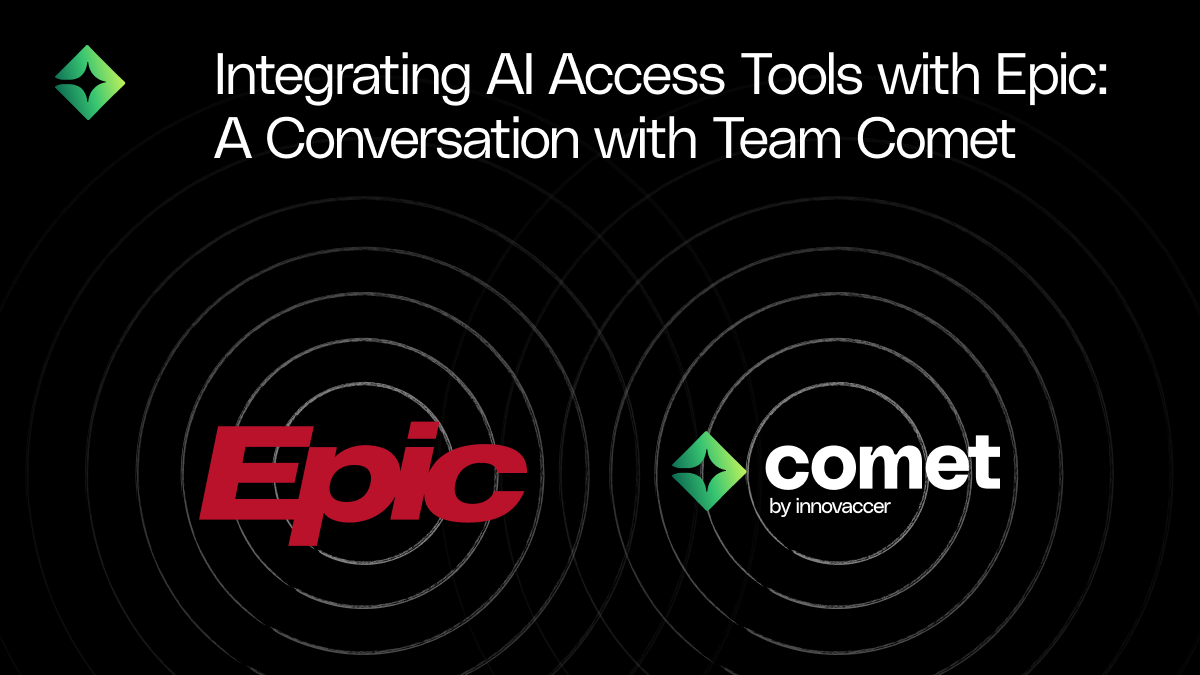Data aggregation: Why Healthcare Needs it Now More Than Ever

With rapid advancements in healthcare and technology, life expectancy has surged, driving an unprecedented demand for healthcare services. In 2023, healthcare spending in the US was projected to grow at a 5.5% annual rate—yet this growth isn’t enough to meet the needs of an aging, expanding patient population. Compounding the issue, the healthcare workforce is not keeping pace.
By 2036, a shortage of over 86,000 physicians is expected, along with critical gaps in nursing and allied health professionals. This shortfall puts additional pressure on care managers, who are already stretched thin by rising patient loads and administrative tasks.
How can VBC-focused health systems support their care managers? The answer lies in AI. By leveraging AI strategically, health systems can improve a care manager’s productivity, optimize care delivery, and boost patient outcomes—all while reducing the strain of routine documentation and data processing.
How AI Supports Care Managers in Value-Based Care?
- Enhancing Operational Efficiency
Administrative tasks account for nearly a third of healthcare costs in the United States, with much of the burden falling on frontline healthcare staff, including care managers. Documentation requirements often lead to “administrative fatigue,” as care managers spend significant time updating patient records rather than engaging with patients.
Automating documentation with AI can streamline routine tasks by digitizing and pre-filling information from patient interactions, medical history, and care plans. This allows care managers to focus more on meaningful patient interactions and spend less time on documentation, providing a higher quality of care.
- Proactive Patient Population Management
Value-based care relies on identifying high-risk patients who would benefit most from preventative interventions and targeted care. Unfortunately, without the right tools, it can be challenging for care managers to accurately identify and prioritize at-risk populations.
Advanced AI algorithms offer sophisticated risk stratification, segmenting patients by health risk, likelihood of hospitalization, and other key indicators. By flagging high-risk patients, AI enables care managers to allocate resources effectively, reducing hospital admissions and readmissions. This targeted approach can improve overall population health outcomes.
- Delivering Personalized and Evidence-Based Care
Personalized care is a cornerstone of VBC, but creating tailored care plans for each patient can be a time-consuming and complex task. Care managers may need to synthesize a vast array of patient data, including comorbidities, social determinants of health, and past treatment outcomes.
Clinical Decision Support (CDS) systems analyze large volumes of patient data to recommend individualized, evidence-based care plans. With these insights, care managers can offer more precise and effective interventions, aligned with each patient’s unique needs. This approach improves patient outcomes, reduces treatment costs, and increases satisfaction for patients and care managers.
- Boosting Patient Engagement and Compliance
A key challenge in care management is maintaining patient engagement and encouraging compliance with care plans. Patients are more likely to adhere to their treatment when they feel informed and supported, yet care managers often struggle to keep patients engaged consistently.
AI can automate patient outreach with personalized messaging, reminders, and alerts. For instance, patients can receive notifications to schedule follow-up appointments, take medications, or complete wellness checks. AI can also track patient engagement patterns, enabling care managers to refine outreach strategies based on individual needs. This automation not only improves patient adherence but also reduces the workload on care managers, allowing them to focus on high-touch care where it’s most impactful.
- Supporting Chronic Care Management (CCM)
Managing chronic conditions is one of the most demanding aspects of care management, with complex treatment plans and continuous monitoring required. Chronic Care Management (CCM) programs, which target patients with long-term conditions, often require regular adjustments and close follow-ups to prevent complications and costly hospitalizations.
AI can play a pivotal role in CCM by continuously analyzing patient data for signs of worsening conditions. For example, AI tools can flag early indicators of deteriorating health, prompting timely interventions. Furthermore, AI-based predictive analytics can help care managers anticipate patient needs, manage resources more efficiently, and reduce the likelihood of complications. This predictive capability enables care managers to address potential health crises before they escalate, improving patient quality of life and reducing healthcare costs.
Challenges in Implementing AI Solutions and Overcoming Them
While AI offers transformative potential, implementing AI in care management comes with its own challenges, including the need for robust data governance, patient data privacy, and adequate staff training.
- Data Privacy and Security
Healthcare organizations must comply with HIPAA and other regulatory requirements, which mandate strict controls over patient data. Health systems can address these concerns by implementing encrypted AI systems with stringent data access controls, ensuring that patient information remains confidential and secure.
- Staff Training and Adoption
AI tools require buy-in from care managers to be effective. Health systems can facilitate AI adoption by providing ongoing training, addressing staff concerns about automation, and demonstrating the benefits of AI through pilot programs. A well-implemented AI program will work alongside care managers, supporting them rather than replacing their critical role.
A Smarter, More Efficient Future for Care Managers with AI
The healthcare landscape is evolving rapidly, and care managers are at the forefront of managing the challenges brought by increased demand and limited resources. By leveraging AI, health systems practicing value-based care can empower their care managers with tools that streamline operations, improve patient care, and achieve better outcomes. This is an essential step toward building a sustainable, patient-centered healthcare system that delivers value for patients, providers, and payers alike. As we look toward the future, the integration of AI in care management promises a smarter, more efficient, and more effective approach to meeting the growing demands of healthcare.
How can Innovaccer help?
Learn more about Innovaccer’s comprehensive care management solution with an AI copilot and how it can help your organization overcome industry challenges. The solution was designed specifically to support care managers in delivering high-quality, patient-centered care while improving outcomes. It improves population health management and coordinates care across providers, streamlining workflows, and leveraging data-driven insights to enable care teams to proactively address urgent health needs.


.png)



.png)



.avif)









.svg)
.svg)

.svg)

